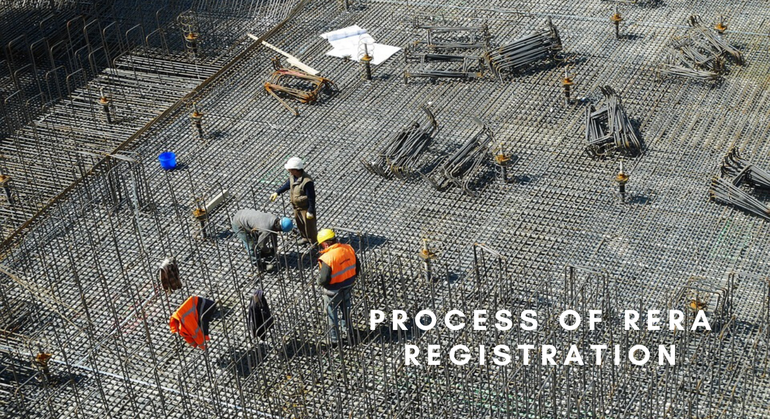

Process of RERA Registration
In order to facilitate transparency in the home buying process, the Indian Government passed the RERA Act in May 2016. Soon after, RERA was brought into action to address concerns of homebuyers, builders, brokers, and other stakeholders of the real estate industry. Since its inception, RERA has implemented many reforms and more are on the anvil. That’s why, as a home buyer or a builder, knowing RERA rules and guidelines will help you navigate the real estate landscape with ease.
The real estate sector has been one of the top-most contributors to the country's Gross Domestic Product (GDP) and employment creation. Surprisingly, in spite of being such an important part of the economy, the real estate sector was unregulated for numerous years. In order to regulate the aforesaid unorganized sector, the Indian Parliament passed legislation called The Real Estate (Regulation and Development) Act, 2016 ("RERA") which was made effective on May 1, 2016.
What is RERA?
RERA, full form of which is Real Estate Regulatory Authority, stands for transparency in the real estate industry. It was brought to action to eradicate the existing discrepancies and problems within the sector.
Why is RERA (Real Estate Regulatory Authority) needed?
As per the RERA Act, RERA committees have been set up across India to promote uniformity and transparency, as well as to regulate the real estate sector. To know more you can look up RERA Karnataka, RERA Delhi, RERA West Bengal, RERA UP, RERA Punjab, RERA Goa, and so on.
With RERA in place, every builder or developer is required to inform homebuyers of the progress of construction, offer the keys to their property by the mentioned date, and abide by every rule outlined by RERA, to ensure accountability.
Registration under RERA
One of the salient features of RERA is the requirement of registration of the real estate project by the 'Promoter' with the Real Estate Regulatory Authority ("Authority"), which falls within the planning areas. In the absence of such registration, the Promoter of a real estate project is not permitted to advertise, market, book, sell or offer for sale, or invite persons to purchase in any manner in any real estate project or part of it.
RERA defines promoter as ("Promoter"):
- Builder;
- Developer;
- Development Authority;
- Society; or
- Holder of Power of Attorney from the owner of the land on which building/apartment is constructed or plot is developed for sale.
A "real estate project" is defined as the development of a building, converting an existing building or a part in apartments, development of land into apartments/plots for the purpose of selling and includes common areas, development works, all improvements and structures thereon and all easement, rights, and appurtenances belonging to such building or land or structure.
The terms "apartment" and "building" as used in the aforesaid definition which is defined under the Act not only covers residential projects but also covers commercial projects.
In terms of Section 3 of RERA, the following real estate projects are not required to be registered:
- Where the area of the land does not exceed 500 square meters or the number of apartments does not exceed 8 (eight);
- Where the Promoter has received completion certificate for a real estate project prior to commencement of RERA; and
- Where the work involved is limited only to renovation or repair or re-development and does not involve marketing, advertising, selling, or new allotment of any apartment, plot, or building.
In addition to the registration of real estate projects, every Real Estate Agent is also required to get itself registered before facilitating the sale/purchase of any real estate project or part of it, by making an application along with requisite information/documents and fee.
Application for Registration under RERA
In terms of Section 4 of RERA, an application required to be made by every Promoter along with the prescribed fee for the registration of its real estate project and shall be inter alia accompanied with the prescribed documents including:
- An authenticated copy of the approvals and commencement certificate obtained from the competent authority;
- Sanctioned plan, layout plan and specifications of the proposed real estate project as sanctioned by the competent authority; and
- A declaration by the Promoter supported by an affidavit inter alia stating:
- that the Promoter has a legal title over the land on which development is proposed;
- the details of all encumbrances on such land;
- the time period within which the Promoter undertakes to complete the real estate project;
- that the Promoter would deposit 70% of the amount realized for the real estate project from the allottee(s) from time to time in a separate bank account.
The Validity of Registration under RERA
The registration granted shall be valid for a period declared by the Promoter for completion of the real estate project or phase thereof as submitted in the affidavit along with the application for registration.
The registration granted by the Authority may be extended by it upon receipt of application from the Promoter in this regard in the following circumstances:
- Force Majeure: war, flood, drought, fire, cyclone, earthquake, or any other calamity caused by nature affecting the regular development of the real estate project.
- Other than force majeure: The Authority may extend the registration to a maximum period of one year if it feels that the circumstances and reasons for the extension of the case are reasonable.
Documents Required For Registration Under RERA
Following documents should be enclosed in hardcopy with the application:
- PAN Card of the builder
- ITR of last 3 years and the balance sheet of the builder
- The builder must clarify about the apartment (carpet area, number of floors, parking space)
- Declaration by the builder of having the legal title of the land with proof
- Details of the land (rights, title, mortgage)
- If the builder is not the owner of the land, the consent letter of the actual owner with documents will be required
- Details of the project (location, sanctioned plan, layout plan)
- Ownership documents (proforma of allotment letter, agreement of sale)
- Information of the persons involved (Architects, Engineers, and others)



